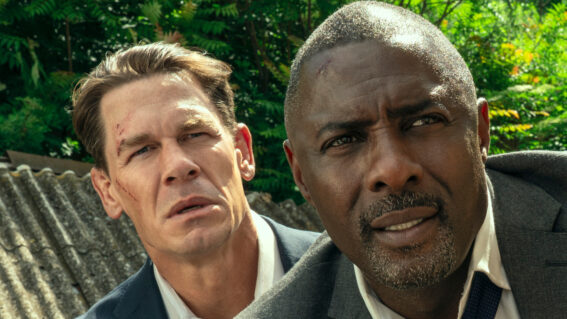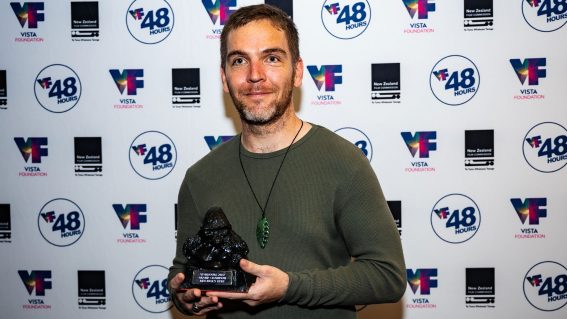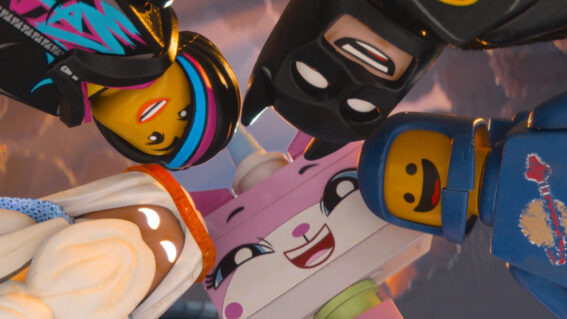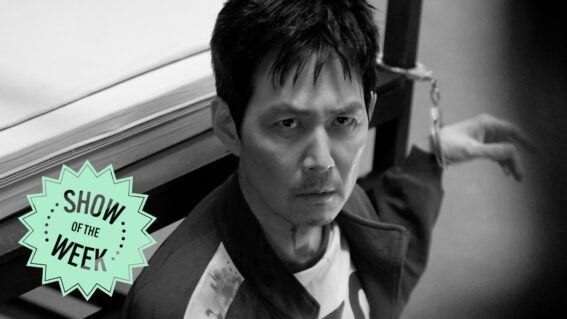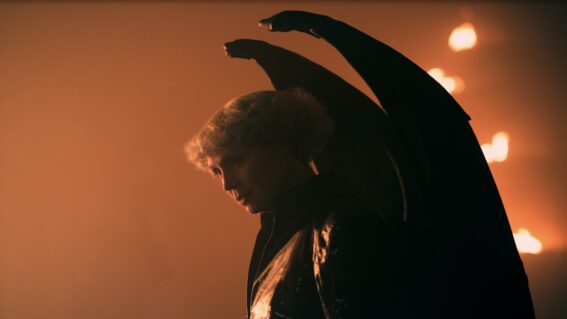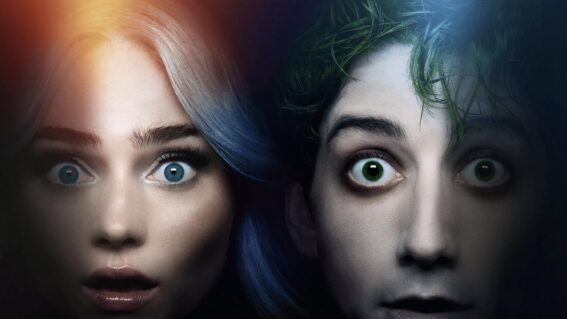The directors of Cousins share the stories behind their impactful Aotearoa drama
Directors Ainsley Gardiner and Briar Grace-Smith talk Cousins.
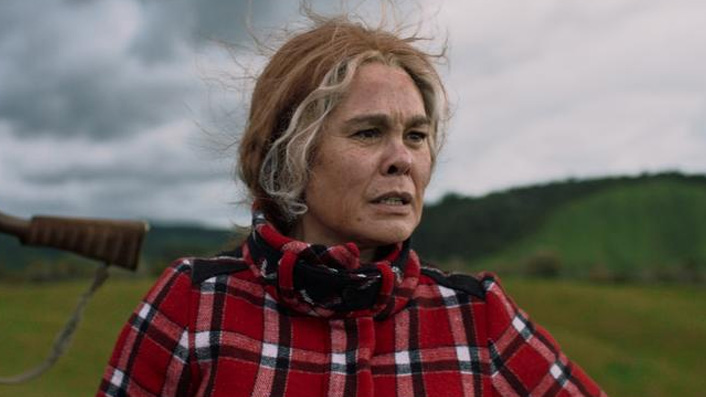
Time-transcending Māori drama Cousins is based on Patricia Grace’s novel about three cousins, separated by circumstance, and their long journey to find each other. Directors Ainsley Gardiner and Briar Grace-Smith talked to Steve Newall about their film – which our review calls “a deeply moving dramatic triumph”.
This interview has been edited for length and clarity.
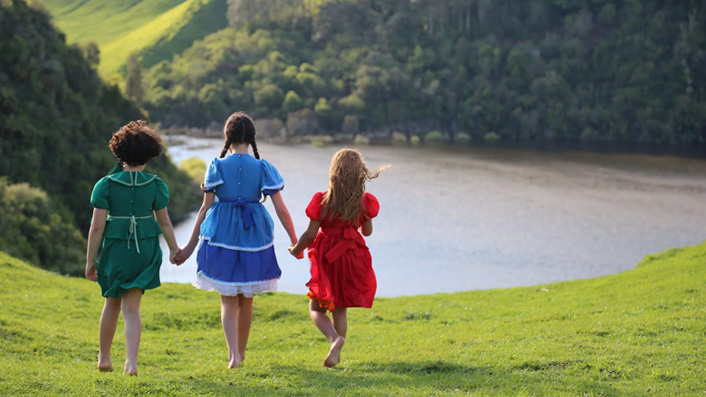
Patricia Grace’s novel had a long journey to the screen
BRIAR GRACE-SMITH: I had a baby who was only a few days old, and they had the book launch in Takapūwāhia. It was some 28, 29 years ago. There’s a marae in Titahi Bay down near Wellington, and they passed the book around the meeting house, and then they also passed my new baby around the meeting house. And the book eventually—many years later—came back into my hands, but that night, the baby got passed out the door, and I lost him. And then I found him in the kitchen with the cooks… he was fine. So it was somehow a metaphor, the feeling of that book returning.
See also:
* All movies now playing
* All new streaming movies & series
* The best movies of 2020
I’ve been in the company of Merata Mita talking to the novelist Patricia Grace about an adaption. I’ve been in the room with them, just in the kitchen or something at Patricia’s house, and felt their excitement and their passion. We were all waiting for Cousins to be made by Merata, and that didn’t happen. So I’ve just had this kind of weird experience of the story but from a peripheral angle.
Merata Mita’s script was lyrical and beautiful – but that wasn’t enough to get Cousins made
AINSLEY GARDINER: I read the novel in my 20s, maybe I was at university or something, so I was really struck by it because it was probably one of my first times reading wāhine Māori novelists with Māori women as the lead characters and just her way of writing. So I was really struck by it. But then I came to know Merata, it must have been about 18 years ago. I was at Cliff [Curtis]’s house in Rotorua with Merata, and she gave me her script of Cousins, which, when I read it, was one of the most beautiful scripts I’d ever read. I had the same reaction as I did to the novel. The novel kind of exposed me to a whole different way of storytelling that I had never really experienced before.
Merata’s script captured the essence of the book as I recalled it and was really lyrical. I always felt about her script that it felt like a painting, like looking at a really beautiful painting. And yeah, she couldn’t get it made. The feedback on the script was ridiculous. It was a time where a passive protagonist was not allowed. “You can’t have a main character who doesn’t speak. If you’re going to have ghosts, then you need to have ghosts throughout. You can’t just bring ghosts in at a tangi. The only pakeha characters are not very sympathetic.” This is the feedback that she was receiving at the time.
So it was not the time for her to get it made. When she passed in 2010, I picked up The Pā Boys, which was a film that she had been going to produce. I felt an obligation to both her and Himiona [Grace] to pick up that film on her behalf and make that film for her, and I always felt similarly about Cousins. But I think then Briar started working at the Film Commission, and we talked about Cousins. And Gaylene Preston had tried to get it made, with the same kind of story. She wasn’t able to get it past the Film Commission, get it funded.
I picked it up in 2015, untangled all of the complex ownership rights, and tried to work out who would write it. I talked to Briar, who was working at the Film Commission. “Briar, who should write this film? I can’t think of a really good wāhine Māori writer. Can you? Can you think of anyone?”
BRIAR GRACE-SMITH: And yeah, I was going, “No, I’ll put my thinking cap on.” And then another year later, I said, “Oh, I’ve just been grappling with this. I think I want to write the film. What do you think?” And she was like, “Okay.”
AINSLEY GARDINER: We were both being ridiculously polite, probably, because I was thinking, “God, I want Briar to write the film,” and Briar was thinking, “God, why doesn’t she ask me?” but we were tiptoeing around each other.
Cousins was a challenging novel to adapt
BRIAR GRACE-SMITH: The issue I know that they came up against is that there’s so much material in the novel that I gather they were telling too many stories. This is the feedback that they got. So with that in mind, I just went in and, well, I had Ainsley there and we just talked about what stood out for us and made some really strong instinctual moves right from the outset. And that didn’t change that much throughout the process.
Ainsley reminded me today that we added to what I had. We dipped into the book again and added more. That was a process of truncating from the novel, truncating it and also, sometimes, we would be putting two places together or attributes of one character into another until you’ve got that strong sort of narrative going. So I hope that we’ve captured the spirit of the book because I think with adaptions, that is really important, to capture the spirit, but you do have to make quite big changes, often, to make it work.
AINSLEY GARDINER: Often, in that editing process when we would try working things together, we would often just have to go back to the script and go, “Let’s just put it the way the script had it,” because there was just this very natural flow in the script, by skill and by magic and whatever the key ingredients are, Briar did it really well.
BRIAR GRACE-SMITH: You have to do your best on the page. But to what Ainsley was saying, of course, there were moments in that layout on the script where—because the film life is a different life—you felt, suddenly, a lack of tension. So it was like, “What do we have that we can put in here to keep that tension going?” It was a really big effort, the editing process.
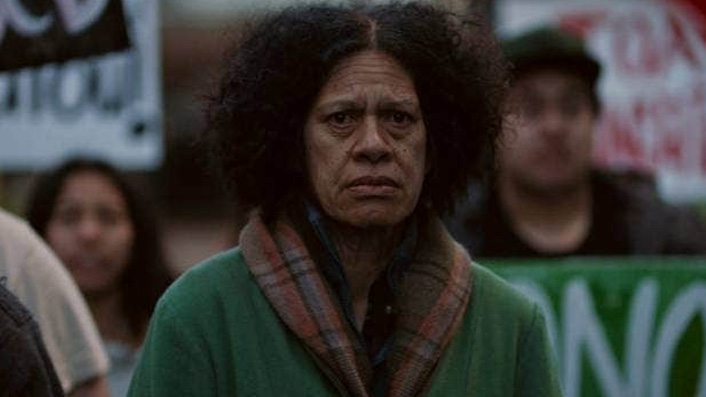
Indigenous vs Hollywood storytelling
AINSLEY GARDINER: I think what we were also exploring, at the same time as just the material, is, “what are the processes of storytelling that are inherently indigenous?” What are the storytelling formulas that work for us that we’ve borrowed from a pretty short history—the Hollywood filmmaking kind of history is only 120-something years old.
The lessons about storytelling for film that we have learned are relatively recent, and so we realised things like that—conflict, tension—that wasn’t necessarily the goal of the film. It was more to create this sense of flow and emotional flow. And we wanted time to feel really fluid because, as far as we’re concerned, as Māori, there isn’t past, present, and future. Particularly, when you hear speakers stand up to whaikōrero, the way they talk about things is very fluid, from the gods to the humans to the past, and we wanted to achieve that in the film.
So yeah, we often had to kind of work a little bit against the impulses that we’ve developed from being consumers of other films like, “Oh, we need some conflict to happen here.” It’s like, “Do we, though? Or can we just…” Which is hard. And it’s hard when you watch the film because your inner Pavlov’s dog goes, “Oh, I’m ready for something big to happen now,” and actually, that’s not what the story’s asking for.
We had the analogy of weaving and painting as two things that we wanted to sort of evoke. It was a sense of things just flowing together like weaving, and for the experience of watching the film to be like observing a painting. We were inspired. We had an early meeting with Star Gossage, who’s a New Zealand Māori painter, and she just talked about detail, like hands and colours and things. And you’re like, “Yeah, that’s actually the experience we want people to have,” is just to feel as you would looking at a painting, that you’re just focusing on these sort of moments and having an overall emotional response to the whole experience of watching it.
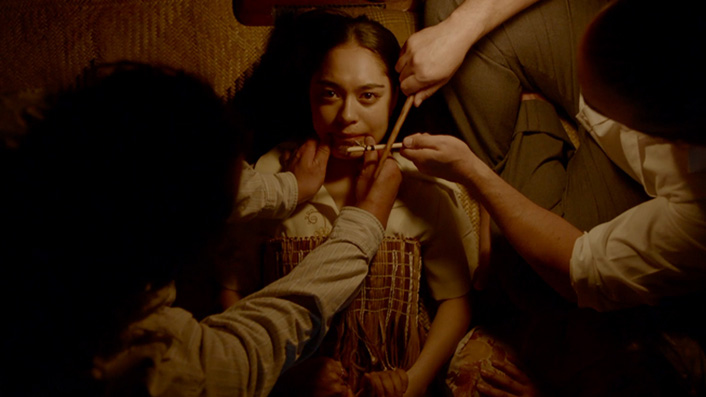
What made this the right time for Cousins to be made?
BRIAR GRACE-SMITH: We were just talking before about how neither of us wanted to make this film. I didn’t want to direct it by myself. Ainsley didn’t want to direct it. So we can’t imagine having done it alone, and there’s no way I could have or would have. So yeah, it’s been a real collaboration of minds and experiences, eh?
AINSLEY GARDINER: Yeah. I think, actually, one of the significant differences is where Briar and I are in our individual careers. So with Gaylene Preston and Robin Laing, I don’t know how they didn’t get a yes, but Merata, as well, was a senior practitioner. However, I think at this particular time, where Briar and I were in terms of own successes and that sort of thing, it meant we had a bit more clout. We really went through the development process sort of on our own, and the Film Commission, other than the tedious process of untangling the legal rights—that was probably the most difficult part of the process—they largely left us alone.
I think having done Waru, it had an influence because it was such a different way of working because it was a very specific perspective. I think the head of the Film Commission, Annabelle, had come into the Film Commission around the time of Waru, and so she was very kind of moved and inspired by that, both as a film and as a process, so we had that on our side.
There was sort of a convergence of a number of things, but probably the most significant were actually two things, which were that Briar and I were hard to turn down, for want of a better word, and that Waru had sort of created a platform for something like this. Not to mention so many other, in the wider industry, indigenous voices and alternative kind of ways of telling stories and that sort of thing. I’d say those were the most significant.
I was pretty surprised that they let us co-direct because actually, whilst we’re very experienced writer-producers, we aren’t very experienced directors, and they did have some issues around the scope of the film and the number of periods that it covered. I think that’s the sign of the times, that any resistance we came up against dissipated really quickly and without too much pressure. So it’s not the most interesting answer, but it actually was that. It was just a convergence of things.
BRIAR GRACE-SMITH: And I think, too, thematically, and with what we’ve experienced with COVID, people have been doing a lot of internal searching, and we’ve been separated from family and friends. We’ve been through all of that. The film has struck home with audiences, possibly, in a way it might have not done a year and a half ago or something. These themes of dislocation, as humans, we can all connect to that, feeling that need to belong and not having it. So it’s resonated quite strongly with audiences in that way now.
AINSLEY GARDINER: I was really naively and ignorantly under the assumption that there was nobody who could direct Cousins. There was no Māori woman with the skills to direct it, and I had to slap myself after we did Waru because I was like, “Fuck. Not only is there one, there’s at least eight,” and that was out of a pool of 20 or 30 or 50.
And so, as soon as that was done, it really opened up my mind to it. And it reminded me one of the coolest things about Waru was the development process, which was nine women with Kerry and Kiel sat around the table all talking about our lives, crying, arguing, and then sort of gradually coming to this beautiful collaborative space out of which Waru was born.
I was reminded, “Oh, man, we’ve already got alternative processes for storytelling. We’re not looking for anything. It’s already there.” So my mind’s incredibly colonised, particularly in the industry sense. So yeah, it’s been a joy. Cousins has been a joy in that way, for me, to just be able to decolonise my own brain and my own processes and look at storytelling from a completely new-old point of view.
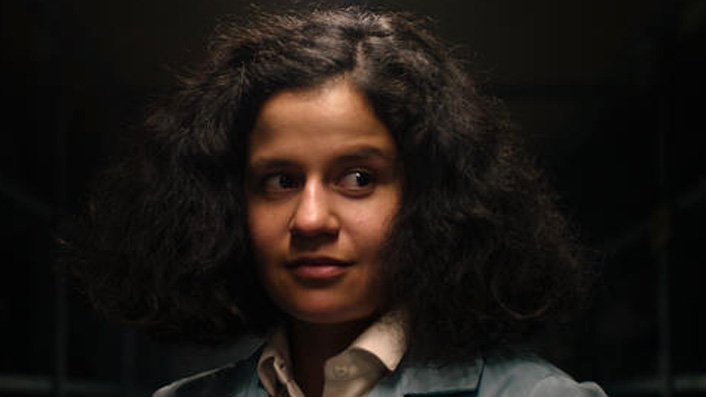
Cousins was spoilt for choice when it came to casting
BRIAR GRACE-SMITH: here was so much talent out there, and we put out a big casting net, particularly for the children. So there were many, many children that we auditioned, and we had to watch and then sort through the versions and swap them around. And Ainsley, who loves her diagrams and maps and graphics, would continually, every day, present to me these options. We ended up getting closer and closer, and then it got quite terrifying with making those final decisions about cast.
AINSLEY GARDINER: That was another thing about the timing of this film, was that we were spoilt for choice. We had so many actors we could choose from at so many stages of their careers, and that was sort of how we went about it. There was this thing of “Okay, there are certain people who need to be in this film because of the mana that they have in this industry,” such as Rachel House, such as Nancy Brunning, who wasn’t able to be in the film in the end. And so we started with those. Ana Scotney—okay, put her into the diagram—and then, sort of before we even knew who they would play, we knew they would be in the film. And then it was just a jigsaw puzzle, trying to work out what the energy, that flow is between the characters.
BRIAR GRACE-SMITH: That was the big thing. It was a more an energy thing, wasn’t it? What shone through. And the children also shone through in the adult versions.
AINSLEY GARDINER: That’s such an incredible thing to understand, and we don’t say this in any kind of flippant way. We could’ve made the film with a number of different castings. If you took out all of the actors that were in the film, we could’ve made the film with a whole other bunch that still would have had the same kind of qualities and skills. It was fun to see our casting wall with all of the headshots, just so many wāhine Māori and kotiro Māori, which is not usual, ever, in a film.
BRIAR GRACE-SMITH: No. But when you see something like that… it was a huge wall with all these pictures, these faces of Māori women. God, for me it was like someone had punched me in the guts. And then you just realise it’s because I’ve never seen this before, really. This is what I’ve been missing, but I haven’t realised that.
AINSLEY GARDINER: It was awesome. And especially the kids casting, that’s almost always so much fun. Because everywhere you go, you’ve got these kids who are just flipping brilliant with all this energy, particularly when you do provincial casting, seeing country kids. Country kids are awesome, man.
BRIAR GRACE-SMITH: Pretty confident, eh?
AINSLEY GARDINER: They still run around on bare feet, go out in the morning, come home late. They still grow up like we grew up. Or like they grew up. And it’s always really exciting. It makes you wish for the opportunity just to make more and more and more of the films where we can use all of those amazing, amazing kids.
When it comes to budget, constraints can help things turn out better
AINSLEY GARDINER: I think the thing is that Georgina [Conder] and I, as Miss Conception Films, we came up under Larry Parr through these low-budget filmmaking schemes, and, I don’t know, it’s just never really been an issue. You do ask a lot of people, and you hold people to a really high standard, and then together you’ll work out a way to do it from the kind of most obvious ways. Like, “Well, we’ll just shoot this way,” or just put the money where it needs to go.
I remember that film, The Theory of Everything about Stephen Hawking. It’s actually a really good example. I mean, clearly, they had a massive budget, but when you actually watch the film itself, it’s really, really intimate, and most of the time passing is shown by wallpaper on the wall changing. And so it’s just about being smart and also not feeling like budget is a restriction. We’ve never gone into filmmaking thinking we don’t have enough money. Whatever the money we’ve got, is the money we’ve got. New Zealand filmmaking is always low-budget filmmaking, and so having the mentality that we don’t have enough is just not the place to start.
BRIAR GRACE-SMITH: Sometimes it’s like taking an idea and going, “Well, what is this about? What are we trying to say? What notes do we want to hit emotionally with the audience? And do we need all of this stuff around it?” So in Cousins, when we go underwater and someone sees a taniwha, what is it that we see? She sees a few ribbons and some legs. It still does the trick.
AINSLEY GARDINER: That’s why I love constraint because the best creativity comes out of it. It’s like The Five Obstructions. When you put a wall around something, and all you’ve got is whatever’s inside the wall, that’s that. That part of the film, as well, involves the way that a child’s imagination works and how memory works and how, despite the trauma that you suffer, a child’s imagination is still able to conjure something beautiful out of almost nothing. That’s the kind of sensibility you bring as filmmakers—in those types of constraints, your imagination goes to work, and that’s where you can kind of be the most creative and brilliant filmmakers you can be, I guess. For me, that’s the most fun. The more constraints, the better.
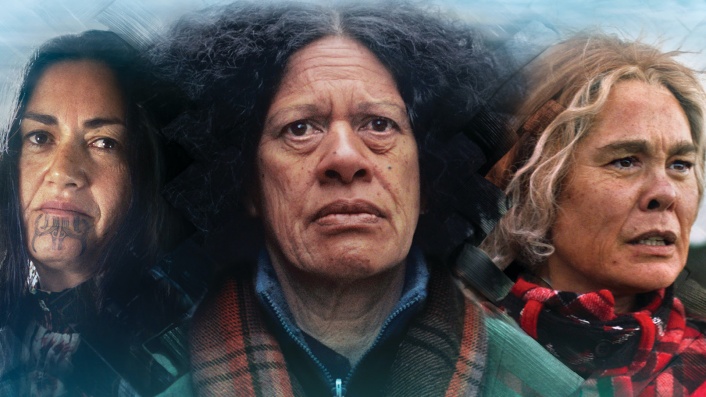
Commercial success, cultural impact and colonisation
AINSLEY GARDINER: We want to do well because so many of the films in the kind of top 10 New Zealand box office are Māori films, and none of them are films by Māori women. So there’s things like that. In terms of the big goals around Cousins and how it reflects on the culture, yeah, I’d love it to generate the same kind of conversations about culture in politics and society that others like Once Were Warriors and others have done. Because I think those conversations need to just keep happening and keep happening.
BRIAR GRACE-SMITH: I often work as an adviser or a mentor to emerging scriptwriters, and they’re very colonised in the way they’ve been taught to write film. And I like the idea that this might help change the game a bit and say, “There is more than one way to write a film, and let’s talk about that. How does your story most naturally unfold?” Anything’s possible. We’ve just been told it’s not.
AINSLEY GARDINER: And the funny thing is, with colonisation, there’s always the idea that it’s a pakeha and Māori thing, but actually, our brains are all colonised—yours, mine, Briar’s—in the same way. Our government is based on the English system. Our courts are based on the English system. Our filmmaking is based on America. It’s like there’s so much that doesn’t truly reflect who we are. So actually, if we can all kind of get to the point of going, “Damn, who are we really?” there’s that sort of sense for true identity and true belonging.
I always think of Māori culture as being the identifying factor that we all share in New Zealand, and so actually, how can we influence the development of, and the emergence of, structures that are truly of this place? I think it would be amazing. I really just want people to be moved and love the film at that really personal level. When you’ve worked so hard on something and you put it out to the world, you truly just hope that people like it and feel something. Not even like it, but feel something.
Cousins isn’t ours, and it’s not of our imagination. It’s this thing that’s come through our hands, and it’s had its own momentum and its own history and its own trajectory, so sometimes, we’re actually still coming to terms with what it is and what was intended. It was fun, and it’s fun to talk about it.






